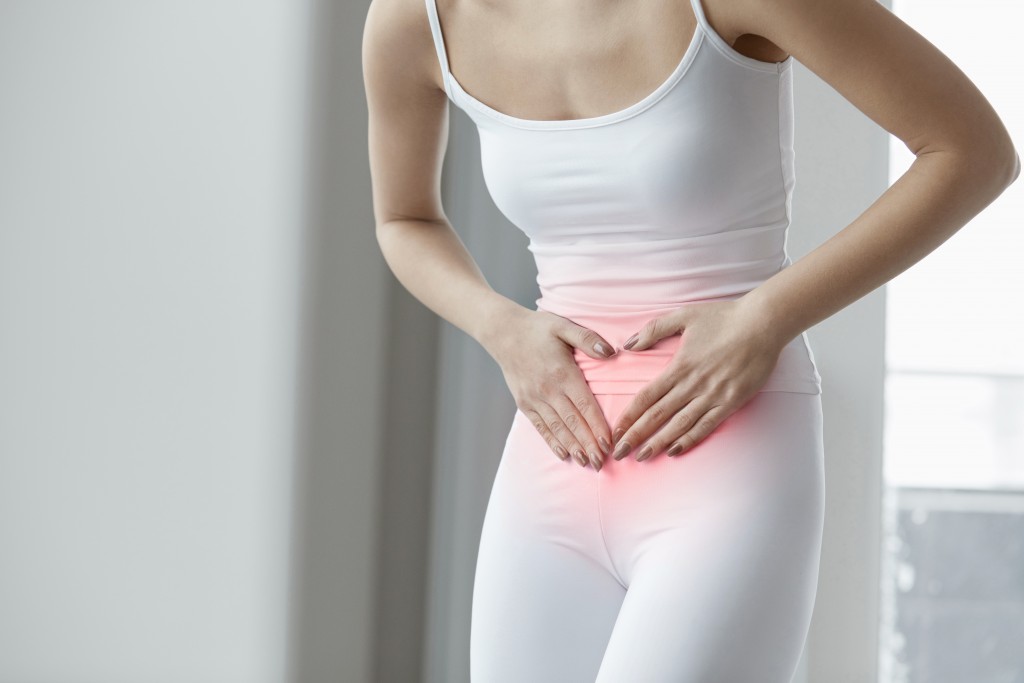Menstrual cramps are as real as any debilitating illness. It’s not something you imagine. If you feel like your periods are worsening, it’s because they probably are. No, you’re not paranoid. And you’re not overly dramatic. You are suffering, and you need help.
The medical term for what you are going through is dysmenorrhea. It has two general types: primary and secondary dysmenorrhea. The former is linked to the menstrual cycle, wherein the lining of the uterus produces surplus prostaglandins, which causes abdominal cramps. The latter is associated with an existing medical disorder, such as endometriosis, ovarian cysts, reproductive tract problems, and pelvic inflammatory disease.
Thankfully, you do not have to be a martyr and suffer through dysmenorrhea. There are ways to lessen the pain brought about by your menstrual cycle. Here are a few recommendations.
-
Exercise
This might sound counter-intuitive. You’re in pain, and here we are advocating for exercise. But trust us, we’re not sadists, and we do not wish to cause you more pain and suffering.
Exercise helps to improve blood circulation. Clogged up blood in your uterine veins causes swelling, and thus you feel pain in your abdominal muscles. Once your blood circulation works on its optimum level, the aforementioned clogging is avoided, therefore lessening bouts of cramps.
You can stick to low-impact cardio, like swimming or walking. Although if you’re up for it, you can also go running, which will increase your endorphins supply. Endorphins affect pain management.
Start exercising a couple of days before your menstrual cycle and for 30 minutes at a time for best results. Make sure to take notes of your experience to determine which routines work best for you.
-
Heat compress
While you’re on your monthly period, your uterus is busy secreting its lining from your body. In this biological process, chemicals are released in your body, which causes contraction in your uterus. This contraction induces lining secretion. This contraction is also responsible for the pain you feel in your lower back and/or lower belly.
By applying heat compress on your lower stomach, the muscle wall relaxes. This triggers improved blood flow, which then alleviates your menstrual cramps.
A towel soaked in hot water is all you need for this remedy. You can also use a hot water bottle. Or you can head to a nearby pharmacy to purchase an electric heating pad. Apply the heat compress for approximately four hours. Make sure that the temperature is within the 104 and 113 degrees range.
-
Acupuncture
 Consider this as an alternative treatment. If Ibuprofen has stopped working and a heat compress won’t cut it anymore, maybe it’s time to try something new. Acupuncture is the process of placing strategic needles into your skin to target specific areas in the body that needs healing.
Consider this as an alternative treatment. If Ibuprofen has stopped working and a heat compress won’t cut it anymore, maybe it’s time to try something new. Acupuncture is the process of placing strategic needles into your skin to target specific areas in the body that needs healing.
Manual acupuncture can aid in pain reduction during menstrual cycles. According to a study cited in Medical News Today, this treatment can reduce menstrual cycle pain by 50 percent.
Acupuncture is not for everyone. If you are afraid of needles, this treatment might not be right up your alley. If that’s the case, you can opt for a less drastic alternative instead.
-
Zero in on your brain
The more peaceful your mind, the lesser the risk of suffering from a severe attack of menstrual cramps. With that said, you might want to start engaging in activities that promote mindfulness. These can include practicing yoga and meditation.
Mindfulness routines lower your stress levels. Diminished stress equates to diminished cortisol in your brain. Cortisol triggers severe contractions in your uterus muscles.
For best results, be consistent with your mindfulness routine with or without your monthly period. Or if you cannot fully commit to it, at least start your routines before you ovulate.
If your menstrual cramps are not eased by these treatments or your way of life is severely affected by dysmenorrhea, you probably need to consult a general physician, gynecologist, or urologist. Your doctor might prescribe hormonal contraception or over-the-counter medication to alleviate your symptoms.
Also, you might need to start looking into essential lifestyle changes. For instance, start lowering your sugar, dairy, caffeine, and salt intake. These ingredients are believed to exacerbate dysmenorrhea. You should also ensure that you’re getting ample sleep and that your stress levels are fairly managed. If you’re a smoker, this is perhaps the best time to quit.

